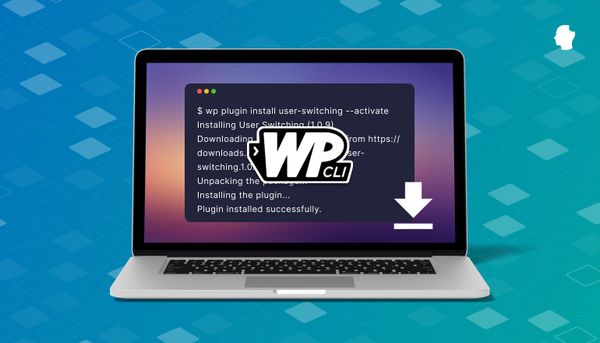Minimizing DNS Propagation Issues With a Reverse Proxy
Migrating servers is a complex process that involves many moving parts. One of the most challenging aspects of server migration is dealing with DNS propagation. When you update your DNS… Read more
Protecting Your WordPress Media: Private Files, Signed URLs, and Access Control
The WordPress media library serves us well for public content, but what about premium assets, private documents, or confidential client data? The default setup makes every uploaded file publicly accessible… Read more
Using Cloud Storage for WordPress User-Generated Content
User-generated content is the proverbial double-edged sword. While it’s a powerful engine for engagement, it’s also a significant technical liability. User uploads are often unpredictable, unoptimized, and can consume server… Read more
Preparing Your WordPress Site for High-Traffic: Media Optimization Strategies
Many successful WordPress sites eventually hit an architectural bottleneck. As traffic scales, the web server struggles to handle the dual responsibilities of running the PHP application and serving a library… Read more
Moving WordPress to a New Domain: A Step-by-Step Guide Without Breaking Links
Relocating a WordPress website to a new domain is a frequent task for developers, but it often comes with the risk of broken links and lost content. Ensuring a seamless… Read more
Merging WordPress Sites: Consolidating Multiple Installs into a Multisite Network
WordPress Multisite is a powerful tool, highly useful for things like client sites managed by an agency, school or university departments, or large corporate structures where many related sites are… Read more
Splitting a WordPress Multisite: Migrating a Subsite to its Own Single Installation
WordPress multisite networks offer flexibility, but a subsite often needs its own single installation for client needs, scaling, or simplified management. Separating a subsite is complex due to Multisite’s unique… Read more
The Best WordPress Backup Plugins for 2025
Backing up your site is a little like buying fire insurance. You never need it outside of a catastrophe, but not having it is just going to make the catastrophe… Read more
The Complete Guide to Installing WP-CLI
The WordPress command line interface (WP-CLI) is a powerful WordPress-developer focused tool. We use it to help us write tests, manage changes to site databases, and we even have WP-CLI… Read more
The Best Local WordPress Development Environment: XAMPP vs MAMP vs Laragon vs Local
A local development environment lets you make changes to dev sites quickly without having to transfer files. It also greatly reduces the risk of making and breaking changes on a… Read more
WP-CLI Packages: Supercharge Your WordPress Development
WP-CLI packages take the increased efficiency of the command line even further by extending it with new or modified commands. In this article, we’ll show you how to install packages,… Read more
How to Test Webhooks From Public APIs in Local Development
Webhooks are a mechanism for receiving notifications about events from disparate systems without having to continuously poll them. Also called Reverse APIs, they can be thought of as providing “API… Read more
How to Set Up AMP on WordPress
Should your WordPress sites use Google’s Accelerated Mobile Pages (AMP)? It’s a simple question with a complicated answer. In this article, we’ll cover how AMP works, how to use both… Read more
How to Use WebP Images on WordPress
Serving lightweight WebP images can help boost your site speed, critical to the user experience and as a ranking factor. In this article, we’ll look at a few different ways… Read more
Using Npm Scripts as a Build Tool
There are typically two types of JavaScript build tools: task runners and module bundlers. In this article, we’ll look at how to use project specific npm build scripts as a… Read more
Everything You Need to Know About Installing WordPress in a Subdirectory
In this article, we look at the benefits and limitations of installing WordPress in a subdirectory, how to install and manage subdirectory installs, and how to move WordPress core out… Read more
Strategies for Handling Large WordPress Media Libraries in Dev and Staging Environments
Offloading your media files is a well-known tactic for speeding up your WordPress sites, but WP Offload Media can also greatly reduce the time it takes to replicate a new… Read more
How To Set Up Amazon SES for WordPress Emails
Running a site that sends a lot of emails, like an ecommerce or membership site, needs a reliable service to keep up with that volume. Using an existing email provider… Read more
JavaScript in the Shallow End: Browser-Based React Native With Expo Snack
“Learn JavaScript. Deeply,” is good advice, but jumping right into the deep end when you’re first learning to swim may not be the smartest move. In this article, we’re going… Read more
WordPress Security Fundamentals: How to Not Get Hacked
WordPress has come a long way towards its stated goal of democratizing publishing, powering roughly 43% of the websites on the web. However, that status makes it a prime target… Read more
Mastering Migrations: Faster, Easier, and Safer Ways to Move Your WordPress Sites
Every WordPress developer knows the feeling of despair when a migration fails, balanced by the immense feelings of relief when one succeeds. It’s a frustrating process for many devs, with… Read more
The Developer’s Advanced Guide to the wp-config File
How well do you really know wp-config? There’s a surprising amount of power in those few lines of PHP! This article is a tour of some bits of wp-config that… Read more
Managing WordPress Dev Environments With WP-CLI and Robo
Automating repetitive tasks is one of the best ways to save time in your development workflow. In my day to day work as a plugin developer, I often have to… Read more
How to Switch Your WordPress Site from HTTP to HTTPS
Just about every WordPress website should be served over HTTPS instead of HTTP, for reasons of both security and SEO. HTTP content isn’t encrypted, leaving your site vulnerable, and Google… Read more























